Hacking our cities and testing our ideas – reflecting on 2021 in the iPlace Project
Edited on
31 January 2022Sometimes the restrictions that limit our way of working can be turned into a positive. The ten cities who are partners in URBACT’s iPlace Project set themselves the task of giving their citizens the opportunity to ‘hack their city’ in the midst of the Covid19 pandemic with severe restrictions on physical interaction in the countries of all the partners.
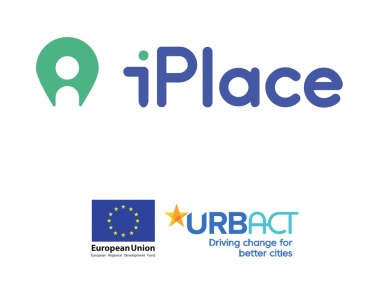
To create online hackathons meant teams had to be formed without physical meetups. The city of Saldus used the Slack digital platform for hackathon participants to register, introduce themselves and form teams. It was an open-ended process with no predefined themes or other team requirements. The result was 16 teams were established who, over a period of 26 hours in March 2021, interacted with team mentors, thematic experts and other knowledge sources such as masterclasses, to develop their concepts for new local economic activity. At the end of the hackathon all 16 teams pitched ideas for the development of the Saldus economy.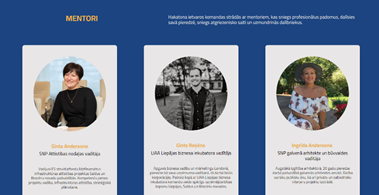
One of the unexpected outcomes was the high level of participation from the city’s diaspora. Saldus is a small city where many of its young people leave for study and work opportunities in larger cities. The online hackathon became a way for those who have left to reconnect and to share their ideas.
One of the reasons why all partner cities successfully conducted hackathons was the training provided by the partner city of Kocevje during a transnational meeting (TNM) held in November 2020. The basic structure of a hackathon was explained from the initial problem identification to ideas generation and testing. This was done using a real life challenge from the city of Kocevje as the case study for all partner cities to practice the hackathon stages using Miro boards. To prepare partners with the skills to use Miro, the city of Amarante, our lead partner, contracted the URBACT digital expert Ian Graham who conducted an online course for all partners in advance of the TNM.
From a survey conducted among partner cities in November 2021, it is evident that the hackathons were a great success. Six of the ten partners rated the positive impact of the hackathon on their own ideas for actions at a level of 8 out of 10 or higher. They attributed their success to the high level of participation from key stakeholder groups such as young people and entrepreneurs; the willingness of municipalities to be open to ideas and to support testing of selected ideas; and to the creative ways that the hackathons were locally promoted and communicated online through social media.
The hackathons were just the start of an integrated planning process where the ideas and inputs of local people, organisations and institutions were invited. The next step was for each partner city’s ULG to select ideas for further testing using URBACT’s approach for testing with small scale actions.
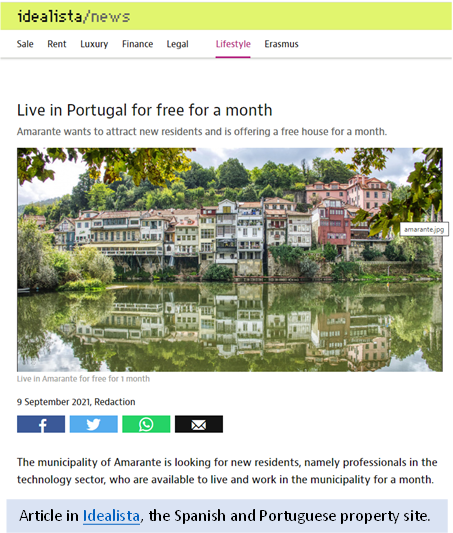 A great example of exploiting the restrictions that Covid19 has imposed on work environments, came from our lead partner, the city of Amarante in Portugal. They wanted to create a practical opportunity for high-skilled technology workers who can work from any location to consider and experience Amarante as an option. The assumption to be tested was that in these pandemic times software developers and other tech-based professionals will avail of an opportunity to leave the big city for a better environment (more freedom of movement and close to nature) to escape lockdown restrictions. In this context the ability of Amarante to attract experienced talent is tested.
A great example of exploiting the restrictions that Covid19 has imposed on work environments, came from our lead partner, the city of Amarante in Portugal. They wanted to create a practical opportunity for high-skilled technology workers who can work from any location to consider and experience Amarante as an option. The assumption to be tested was that in these pandemic times software developers and other tech-based professionals will avail of an opportunity to leave the big city for a better environment (more freedom of movement and close to nature) to escape lockdown restrictions. In this context the ability of Amarante to attract experienced talent is tested.
The small scale action (SSA) of Amarante consisted of advertising for applications in selected magazines and on social media, followed by an evaluation by a panel, who awarded three applicants fully furnished city apartments for free for one month. In return, winners presented a workshop to the local tech community on a specialised theme of their choice which was well received.
In the survey conducted as part of the Mid-Term Review (MTR), most project partners indicated that the use of small scale actions was very helpful to prepare their Integrated Action Plans (IAPs).
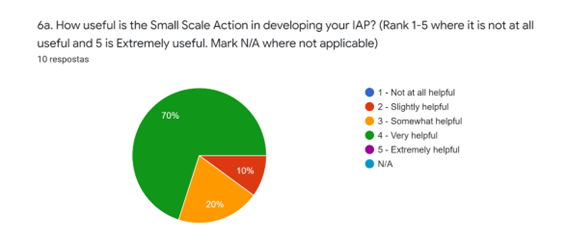
The following table gives a sense of the types of SSAs that the partner cities developed:
Partner City | SSA Description | Main objective of SSA |
Amarante, Portugal | Talent Check-in – an initiative to create a tech network for Amarante Tech Hub | To map the talent that exists in the region so as to validate if there is talent for ICT cluster. |
Balbriggan, Ireland | Local craft market with work of local craftspeople in historic Bremore Castle | To test if there is demand in the Balbriggan area for the wares of local craftspeople. |
Gabrovo, Bulgaria | Youth Entrepreneurship in the Youth Zone – the role of mentors. | To test how mentors can help young people to stay in Gabrovo and start a business. |
Grosseto, Italy | ‘My Green Week’ – out-of-season city offer and visitor promotions of green living | To test best ways to connect with green tourists interested in out-of-season visits. |
Heerlen, Netherlands | Summer Streetlab of Zuyd Hogeschool in city centre – citizen engagement | To test how citizens will respond to a relocation of college elements to city centre. |
Kocevje, Slovenia | Art and identity in city public spaces –context city murals by local artists. | To promote local artists and to explore how they can make a portfolio for new business. |
Medina del Campo, Spain | Online training of entrepreneurs – with webinars on Simon Ruiz website. | To harness the local knowledge and skills of ULG to prepare and present webinars. |
Pärnu, Estonia | Loovlinnak Creativity Hub – temporary space to cluster creative enterprises | To change perceptions of the city as only a holiday place, but also a place for creatives. |
Pori, Finland | Ars Pori Megastore – a six week art event in a old city centre shopping mall | To demonstrate how art can revitalise ‘dead spaces’ in the city centre. |
Saldus, Latvia | Conversion of an empty space in the city to use as an Eco-innovation Centre | To test if a small city like Saldus is ready to for the challenge of green sustainable living. |
The Mid-term review (MTR) of the project also revealed how partner cities intend to positively impact on their local economies. The ULGs of the cities of Amarante, Gabrovo, Pärnu, Medina del Campo and Saldus aim to work with young people to make their cities more attractive for them to stay and to start or join local enterprises. In the cities of Heerlen, Kocevje and Pori the emphasis is on the vitality of the economy of the city centre with the introduction of new elements such as education and cultural institutions as well as active transport and public space improvements. The cities of Balbriggan, Pärnu and Pori are developing actions to stimulate and support the increase and expansion of creative enterprises in their city economies. The cities of Grosseto, Gabrovo, Saldus and Medina del Campo will prepare actions helping their local economies benefit from the green transition spearheaded by the European Union. The cities of Amarante, Gabrovo and Kocevje are focusing on actions to improve the tech ecosystems in their local economies.
During these pandemic times the project reverted to using webinars on the Zoom platform for training and knowledge sharing. The training of all the ULG coordinators in facilitation skills by Dr Louise O’Meara of Queens University Belfast in December 2020 was very well received. Knowledge have been shared during ten thematic webinars with topics ranging from local start-up ecosystems to the future of the workplace. These topics were agreed by partners during the development phase and from the MTR it is clear that the topics were relevant and that the events were very helpful.
During an online workshop presented by URBACT Programme Expert Ivan Tosics in November 2021, all the partner cities reflected on the integration and the impact of their actions and how to further leverage outcomes horizontally and vertically. This followed on from an online session held by the project in September 2021 on the value of Diversity, Openness and Gender Equality in local economic development facilitated by URBACT Ad Hoc Expert, Alison Partridge. This session created learning opportunities for partners to design action interventions of which the outcomes will be cities that are more inclined to embrace diversity and gender equality.
The project is now in its final stages and from the MTR it is clear that valuable work have been done by all partners to put the foundations and processes in place for developing incisive action plans. Now for the most exciting part where partners unveil their IAPs and ‘start the engines’ to get going with delivery and implementation!
Watch this space for more action!
By Wessel Badenhorst, Lead Expert of the iPlace Project, December 2021
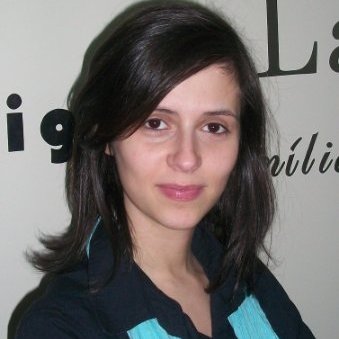 Submitted by Sonia Files on
Submitted by Sonia Files on
